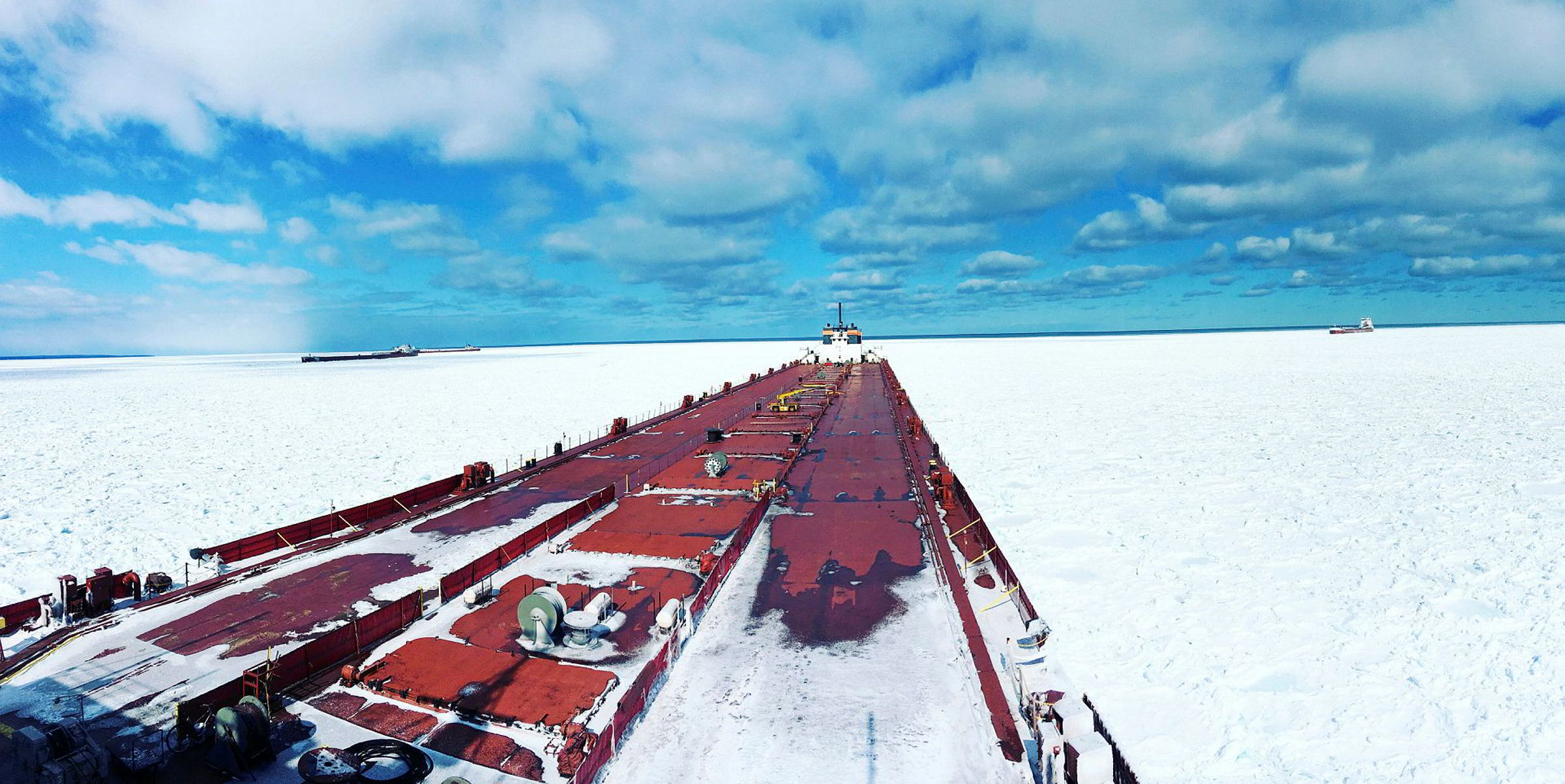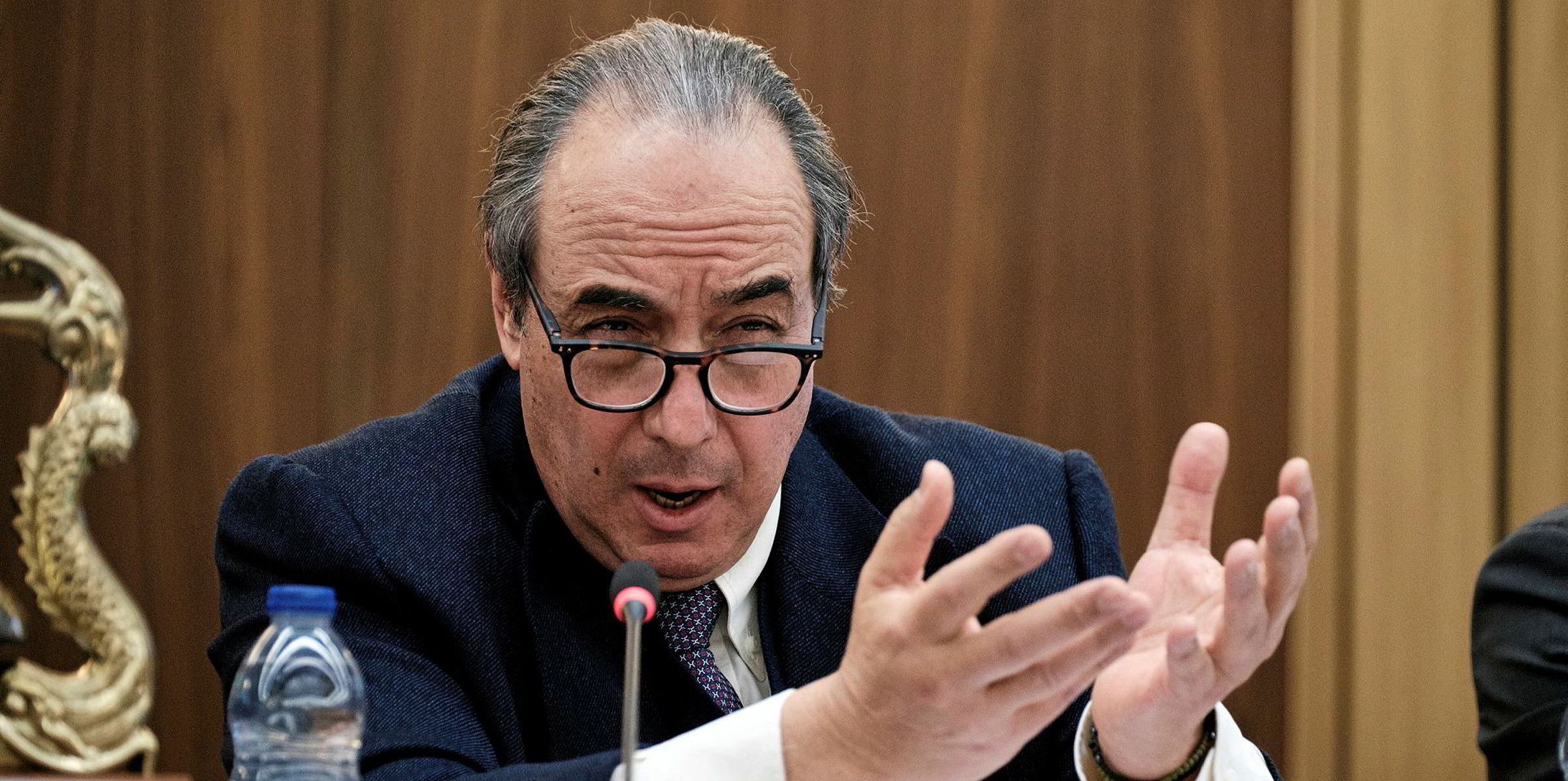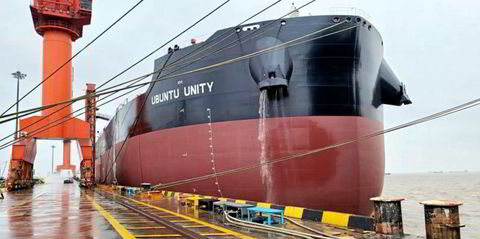For the past five years, Gary Norgren, ArcelorMittal USA's general manager of mining, has looked out over Lake Michigan in early December hoping not to see another winter like that of 2014.
The Great Lakes remained frozen into early spring that year, forcing the steel giant's chartered bulkers to follow an icebreaker through treacherous ice channels.
ArcelorMittal's ships had to cross the Soo Locks to deliver iron-ore pellets from company mines on Lake Superior to its northwest Indiana steel plants at the lower tip of Lake Michigan.
If they did not, the Luxembourg-headquartered steel behemoth's facilities in that part of the world would lose millions of dollars in revenue, Norgren said.
USCG to the rescue
Without fanfare, US Coast Guard (USCG)'s icebreakers came to the rescue. "That spring, the locks opened but no one could get to and from the locks for many days," he said.
"The breakers were actually needed to lead the convoys in and out of the Soo because the channels weren’t staying open. They were refreezing."
Norgren needs to make sure that his outfit's US plants have enough pellets in the weeks before and after the locks close from January through late March, while factoring in market forecasts.
If he and his team do not get it right, these facilities may have to close temporarily at a very precious cost.
Ships employed by ArcelorMittal USA, which also uses lime, coal and coke in its manufacturing processes, include American Steamship's 80,900-dwt Burns Harbor (built 1980) and Interlake Steamship Co's 57,000-dwt Stewart J Cort (built 1971).
He said the company fixes the vessels for no less than a year but would not disclose time charter rates.
"On average, we’re striving to do 40 trips on a whole time charter," he said.

All in the planning
Planning for shipments starts in July for the full calendar year ahead, with an eye on how much iron ore will be needed in December of the following year to keep the plants going through the following year's first quarter, when the locks are closed.
"It's our challenge," he said, having been with the company for two decades.
"We will be looking at what our demand is 18 months out to determine how many pellets we buy for next year."
Norgren and his team often take the huge responsibility in stride, but the winter of 2014 tested everything they learned over the years — and then some.
"We put all of our plants at risk because we couldn’t get them the materials until literally the end of April," he said.
"I don’t think there’s a steel manufacturer in this country that wants to see a winter freeze in the upper Midwest like we saw in 2014."
Shipowners have a time of it, too
The frozen Great Lakes can also be a challenge to shipowners, whose vessels navigate ice channels created by USCG breakers Mackinaw and Adler when crossing Lake Michigan.
Norgren recalls one December when a vessel — the Burns Harbor — got held up for two days on Mackinac Island, at Lake Huron's northern tip, after crossing the locks due to very high winds.
"It was the last boat to go through and it never ran so well," he said.
Norgren said it is a matter of planning out the full year ahead in July with what market information they have on hand, and then making adjustments as the year progresses.
"We have a little bit of flexibility in our contracts to not have to live with that decision for 18 months," he said.
"We can adjust it but we have to make our initial get and set up our initial plans around that volume."
ArcelorMittal USA's five plants at the bottom of Lake Michigan take in 18m tonnes of pellets per year and keep 5m tonnes on the ground at the end of each year to make it through the lock closures.
Made in the USA
Their steel is turned into US-made car parts, home appliances, construction materials and pipelines for carrying oil from oil rigs to their final destination, Norgren said.
"We're also a big supplier to the military," he added.
ArcelorMittal's plants worldwide produced 92.5m tonnes of steel in 2018, while its mines put out 58.5m tonnes of iron ore.
The coronavirus has not had any effect on ArcelorMittal USA's steel business, but a 25% tariff on imported steel and a 10% tax on aluminum imports to the US imposed in March 2018 by US President Donald Trump helped the entire industry there, he said.
"The president’s trade policies have been helpful to the domestic steel industry, including ArcelorMittal USA," he said.







